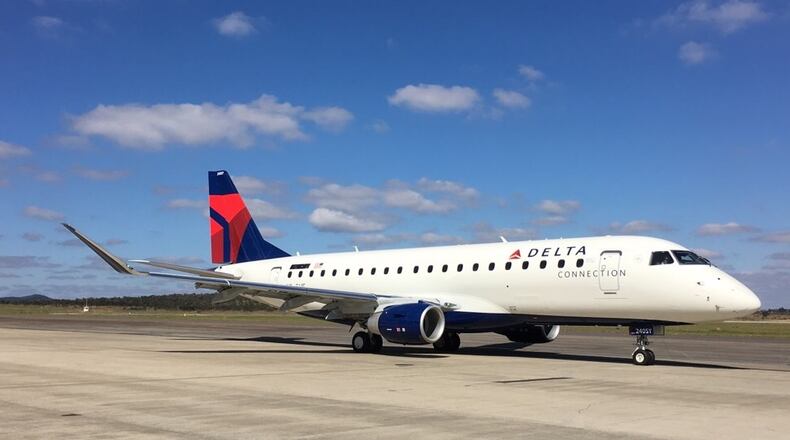Some major airlines are canceling fewer flights now that the holiday rush has passed, but many travelers with seats on planes operated by regional carriers are still experiencing significant disruptions.
Passengers on Delta Connection, United Express and American Eagle flights are among the hardest hit by cancellations nationally. That’s partly because, when major airlines must reduce flight schedules due to a storm, they often choose to cancel flights on the regional carriers that they rely on to serve smaller communities. The thinking is that fewer passengers will be affected.
In addition, regional carriers are also dealing with long-standing staffing shortages that have been exacerbated by the pandemic.
The cancellations are a source of frustration for travelers around the country because regional airlines operate 43% of scheduled passenger flights in the United States, according to the Regional Airline Association.
The problems have been particularly severe for SkyWest Airlines, a Delta Connection partner. SkyWest, the nation’s largest contract regional carrier, also operates flights for United Express, American Eagle and Alaska Airlines.
Thursday, SkyWest had canceled 10% of its schedule, or more than 230 flights, by midday, FlightAware.com data show.
That came after it canceled 15% of its schedule, or nearly 350 flights, on Wednesday and had a string of prior cancellations.
It is one of the carriers that continued to have hundreds of cancellations this week, along with Southwest Airlines, which had some of its largest bases of operations hit by snowstorms in recent days.
Meanwhile, Delta managed to reduce its cancellations from hundreds a day over the holidays to about 2% of its flights Thursday, according to FlightAware.com.
But there’s no sign of immediate relief for SkyWest.
SkyWest said this week that it “continues to see operational impacts due to a surge in COVID cases, quarantines and additional staffing challenges exacerbated by winter weather.”
“Given the ongoing surge in COVID cases and related sick calls,” the statement continued, “we’ve been working with each of our major partners to proactively reduce our January schedules for the remainder of the month to ensure we’re able to adequately staff our remaining flying as we work to recover in the coming weeks.”
Delta said its operations team is working with SkyWest and is still assessing what the impact will be.
Some other regional carriers have also had high cancellation rates this week. Short flights operated by regional carriers can be even more affected by bad weather.
What’s more, regional carriers also have struggled to hire enough pilots for years. Their pilots are often poached by major airlines that pay more. That’s only increased since larger airlines pushed their employees to take early retirements in 2020 during pandemic cutbacks and are now staffing up again, according to Regional Airline Association CEO Faye Malarkey Black.
That leaves regional carriers to fill vacancies relying on new pilots. That pipeline has slowed significantly amid the pandemic, as would-be pilot trainees were deterred by restrictions on flight school operations early in the pandemic and the high cost of flight training in general, Black added. “That is the definition of a perfect storm,” according to Black.
And even for major carriers like Delta that are normalizing operations after mass cancellations during the peak holiday travel period, more disruptions could be in store, depending on the weather and the surging coronavirus.
Separately, Delta on Thursday said that, on Jan. 1, it changed its four-year college degree standards for first officer pilot jobs to preferred rather than required. It’s part of a broader effort by Delta to lift barriers on more of its jobs, as companies compete for talent and work on improving diversity and inclusion.
About the Author
The Latest
Featured



